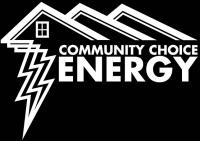February 17, 2021

Back in December, every Boston household and business received a letter from the city about a new energy initiative — the Community Choice Electricity (CCE) program — designed to increase the use of environmentally friendly sources of electricity. But many of the recipients may not have understood the complicated options and set the letter aside, or mistook it for junk mail and tossed it.
What those people likely didn’t realize was that by doing nothing, the city was going to automatically sign them up for the new energy plan they were pitching, which involved switching from Eversource as the “supplier” of the electricity to a new source, Constellation Energy of Maryland. Eversource will continue to be the “deliverer” of the electricity.
How many people actually wound up getting switched?
About 225,800 Eversource residential and business accounts were eligible for enrollment in the city’s CCE program. Of that number, 13,800 opted out, leaving 212,000 accounts that were switched into one of three pricing plans in the CCE program. Of these, about: 210,050 are in the middle pricing plan (“Standard/Default”) in which the city automatically enrolled accounts, 1,250 opted down to the least expensive plan (“Optional Basic”) and 700 opted up to the most expensive plan (“Optional Green 100”).
The more expensive the plan, the “greener” it is.
All the data reported here were provided by the City of Boston at the request of the Reporter. Data were not available segmented out by residential and business.
Consumer advocate Edgar Dworsky takes issue with how the CCE program was pitched to electricity users.
“Electricity is a commodity. Given the opportunity to save money on it, most people would jump at the chance,” says Dworsky, the founder of ConsumerWorld.org and a former Massachusetts assistant attorney general. “But that is not what happened here in Boston where less than one percent affirmatively chose the least expensive plan, Optional Basic. This suggests that few people actually read or fully understood the city’s mailing and did nothing – the exact result the city wanted so it could choose the plan it wanted on their behalf at a higher price.”
But Christopher Cook, Mayor Walsh’s environment chief, argues that a forceful effort was required. “It’s very clear that the climate crisis requires bold action,” he told the Reporter in December. “So, we need to move on clean energy quicker and this is one of the tools we have to do that.”
Boston now joins over 150 other Massachusetts cities and towns in adopting the CCE program, which is a provision of the commonwealth’s electricity law. First approved by the Boston City Council in 2017, it has taken the city three years to find an electricity supplier that was willing to do business with it. Constellation was, in fact, the only company that submitted a bid. There are no penalties that can be imposed on the company if it does not live up to the standards enumerated in the contract.
State law now requires utilities to purchase an increasing amount of power from renewable energy sources every year. The intent of the CCE program is to speed up the process by encouraging electricity users to choose greener energy now. Although alternative electricity suppliers have been around for years, predictably most people have not voluntarily switched over to them.
How much do the savings currently amount to with the cheaper CCE plans? Not much.
The current CCE Constellation rates are 10.9¢ per kilowatt hour (kWh) for the Optional Basic plan, 11.4¢ per kWh for the Standard/Default plan, and 14.7¢ per kWh for the Optional Green 100 plan. The rates are guaranteed from February to November, but then could go up, down, or remain the same.
As reported by the city, the basic rate offered by Eversource, the current electricity supplier, is set at 11.8¢ per kWh through June, with the company changing its rates twice a year, in January and July.
The current savings over Eversource now thus amounts to a half penny and a penny per kWh with the Standard/Default and Optional Basic plans, respectively. So a customer who consumes 600 kWh per month will save about $2.40 with the Standard/Default plan and about $5.40 with the Optional Basic plan. But remember: “Future savings cannot be guaranteed.”
This same customer will pay $17.40 more per month over Eversource for the Optional Green 100 plan.
“We’re proud of the program.” says David Musselman, director of the city’s municipal energy unit. “We think it’s a benefit for customers and we’re looking forward to having this program in place for a number of years into the future.”




